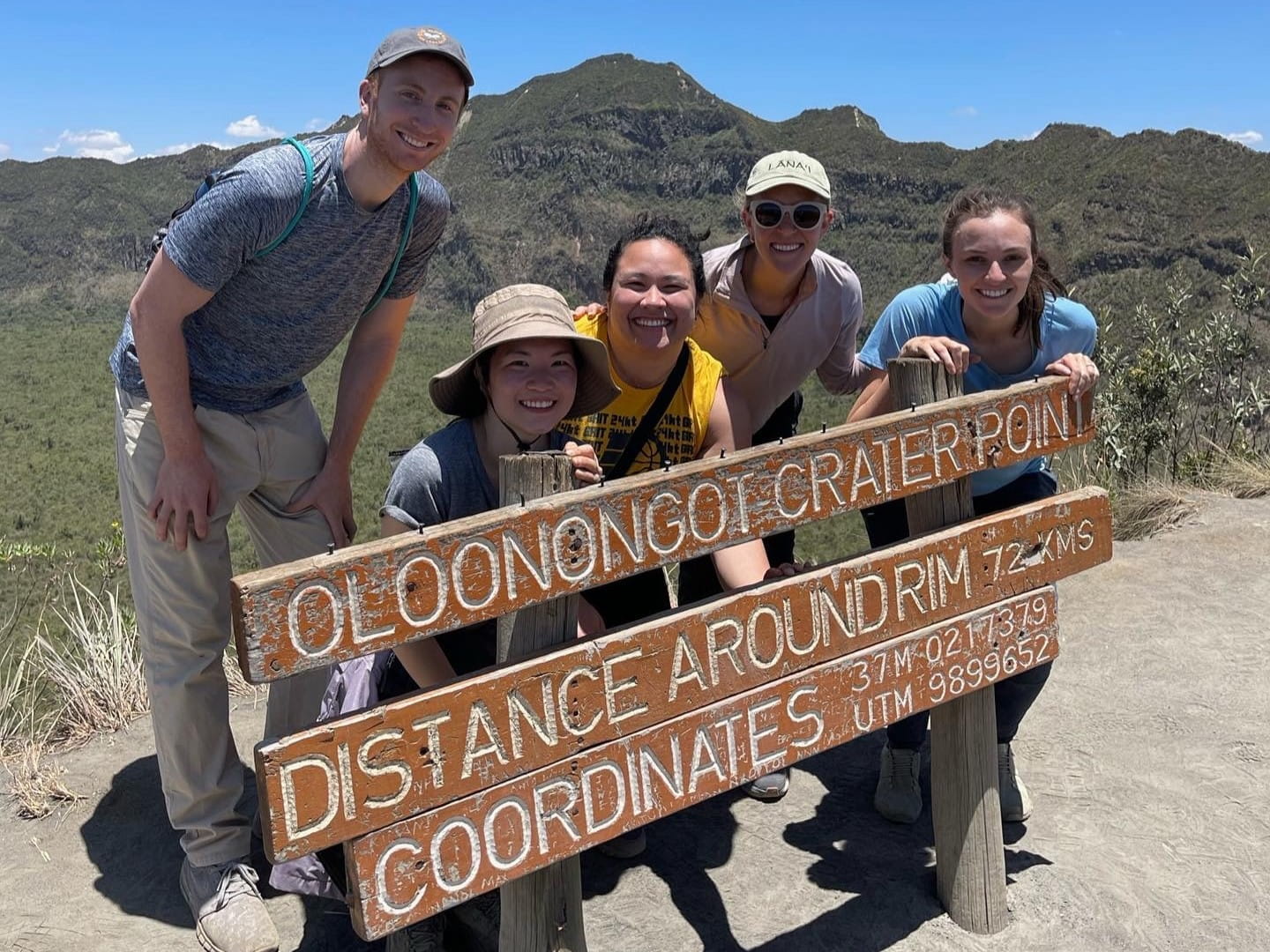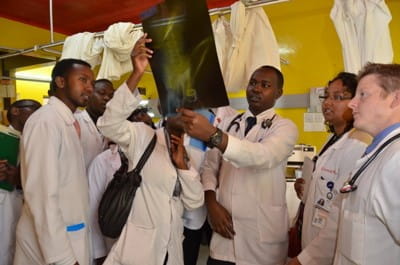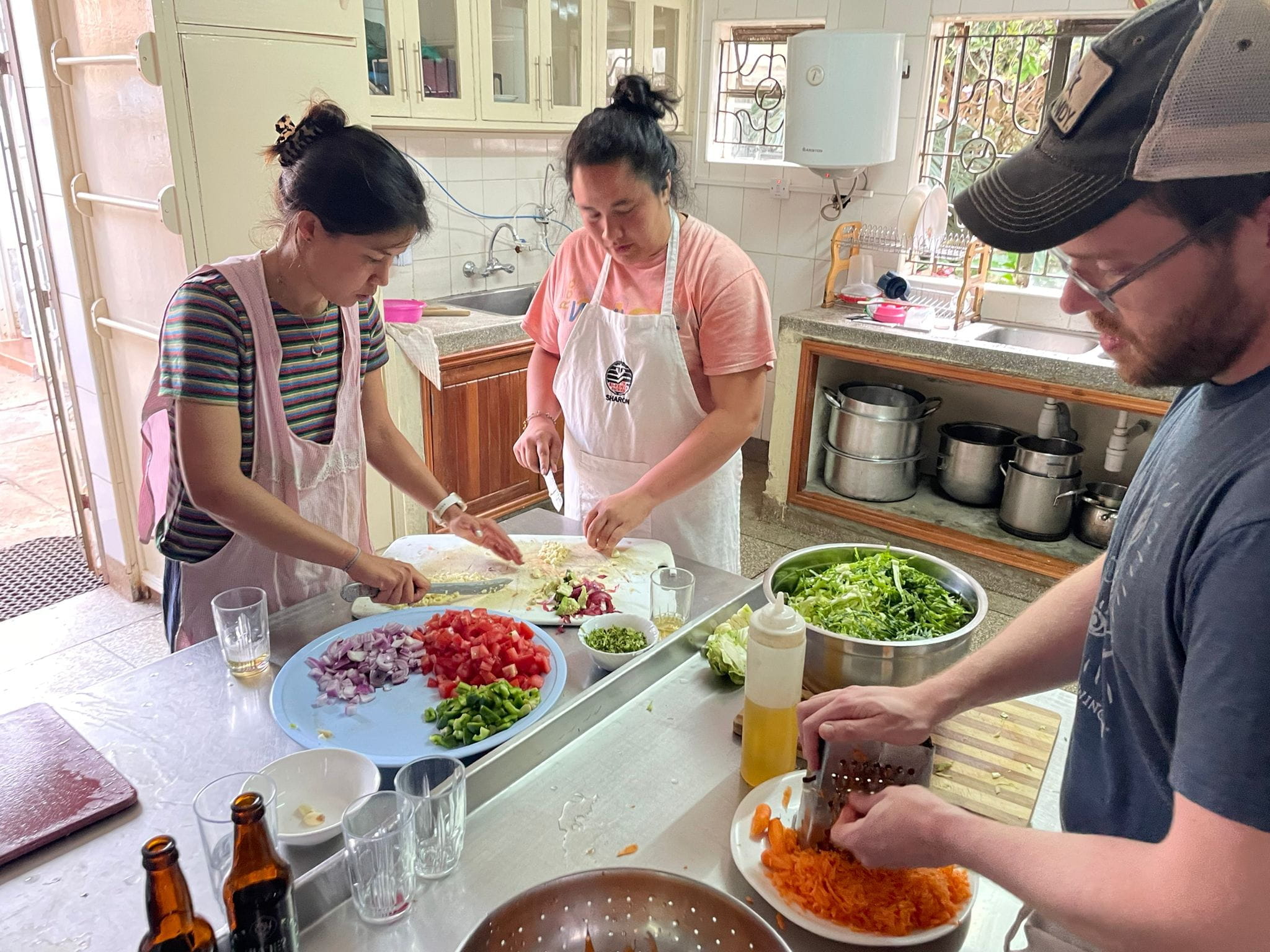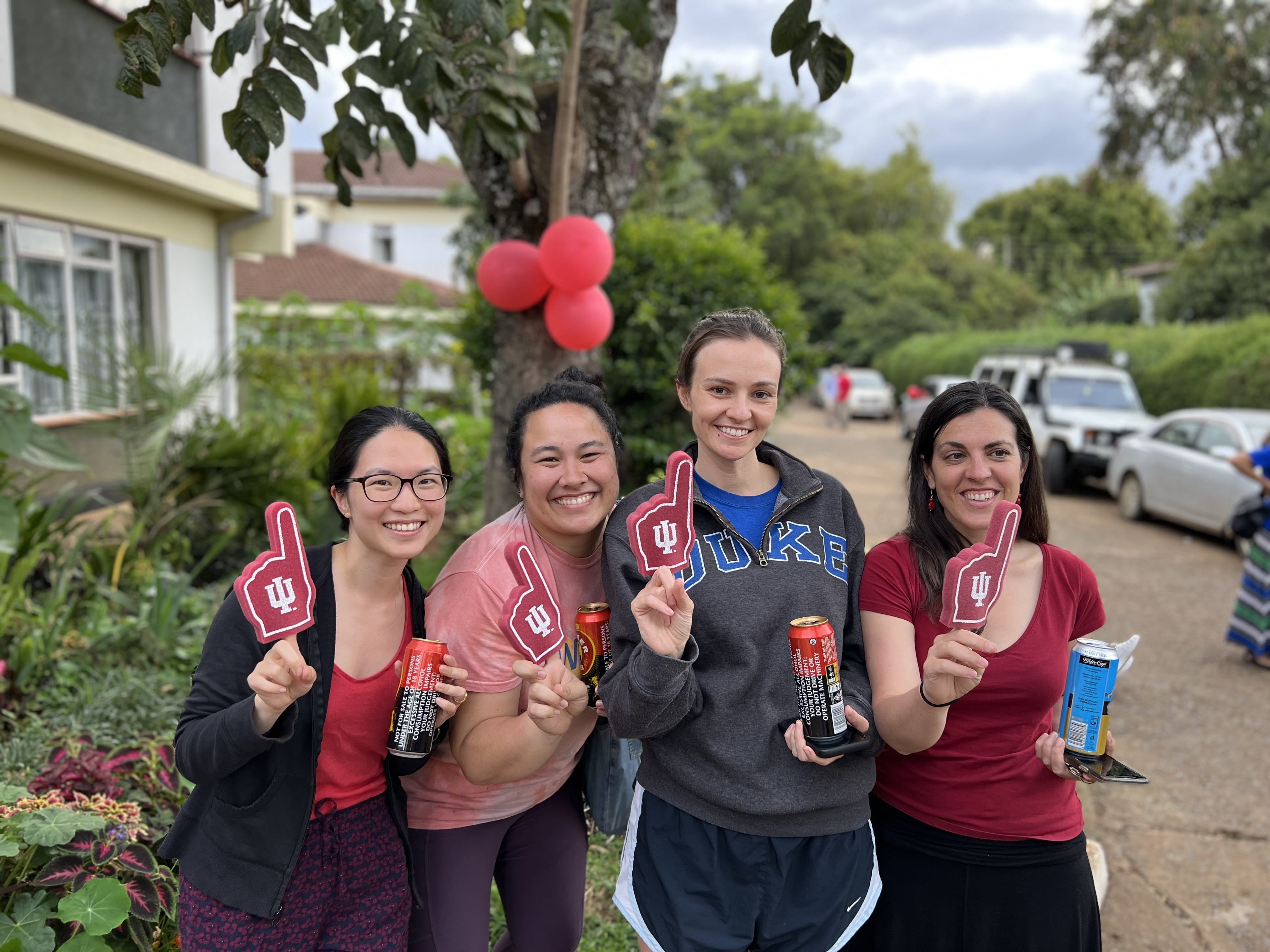The interdepartmental Global Health Pathway engages residents from all specialties to better understand the social, economic, cultural, and environmental factors that contribute to health and disease throughout the world. The program includes didactic sessions, journal clubs, and case-based discussions as well as the opportunity to participate in domestic and international global health electives. One popular global health elective is through the AMPATH-Kenya program, which is among the largest collaborative health care efforts in the world. At any given time, 20-40 IU School of Medicine faculty physicians from various specialties are practicing medicine in Kenya at the Moi Teaching and Referral Hospital. Residents have the opportunity to spend two months in Kenya as part of the AMPATH program. Upon completion of the program, residents receive certification in global health from the IU Center for Global Health. Requirements of the track: 80% attendance at quarterly half-day didactic sessions, a scholarly project, mentorship, and a local or international global health elective.




I am very grateful to have completed the Global Health Pathway. After applying and being accepted into the pathway during the spring of my intern year, I spent the next two years attending quarterly conferences, collaborating with residents from all specialties also participating in the pathway, and exploring how to incorporate global health in my own career.
My interests in global health stem from the desire to better understand how people from all socioeconomic and cultural backgrounds experience illness and health care. The pathway at IU School of Medicine provides a diverse exposure to global health care both domestically and internationally. Through our academic conferences we have the privilege of discussing fundamental barriers to health care, pathology from all around the world, and the structure of health systems in various communities. Additionally, members of the pathway are fortunate to learn from wonderful providers that specialize in Global Health. During my time on the track, I was also able to meet with these amazing mentors that helped me to curate my own specific global health interests.
Another crucial component to the Global Health track at IU School of Medicine is the ability to travel internationally to complete a rotation. I was able to live and work in Eldoret, Kenya through the AMPATH program (Academic Model Providing Access to Healthcare). This was an invaluable experience that really allowed me to see firsthand how to provide high value care in resource limited settings. I thoroughly enjoyed collaborating with my Kenyan colleagues and was ultimately able to use the lessons I learned on the wards there to become a better physician. My experience on the pathway culminated in a poster presentation that I delivered during our annual IU Center for Global Health's Global Health Scholars Day. Overall, participating in this track provided me with the tools to not only pursue global health, but to become a more compassionate and experienced physician!
Clinician-Educator Training Pathway
The Clinician-Educator Training Pathway (CETP) is a two-year program that provides trainees with the knowledge, skills and professional preparation they need to be successful in a career as a clinician-educator, recognizing that the medical education career pathway is a deliberate choice that requires a particular set of skills rather than a secondary facet to another career focus. Trainees are introduced into a community of educators that stresses the collaborative approach necessary for success.
I signed up for this pathway because I wanted to have a better idea of what it is like to be an academic physician. Dr. Dilly, pathway key educator, provides you with all the tools plus more than I expected. The training goes beyond the process of learning how to develop your career as an academic physician (there are so many tracks!) and goes into the different tenets of learning theory. You have the opportunity to create your own curriculum and participate in medical education research. By the time you complete the program, you've also had someone evaluate your teaching style and you start to develop your own teaching philosophy. It's a very interactive program. The meetings are monthly. This is a unique opportunity and you receive a certificate at the end of your training. I enjoyed the program and created a lot of mentors in my area of interest, which is cardiology. This pathway is unique to IU School of Medicine and in large part thanks to Dr. Dilly and her team. You also learn the inherent overlap between being a strong clinician and teacher.
Healthy Outcomes Training Pathway
The Healthy Outcomes Training Pathway is a two-year, cohort-based professional development community for IU School of Medicine graduate medical education (GME) trainees, integrated into existing training programs. The goal of the pathway is to use a health systems science lens to educate and empower resident physicians to discuss, identify, act upon and teach about healthy outcomes that differ across groups in their everyday practice of medicine.
Leadership Training Pathway
In the Leadership Training Pathway, residents and fellows develop leadership skills that will be useful to future leaders in academic medicine and hospital administration. As you grow in your leadership skills, you will become a better team member and team leader.